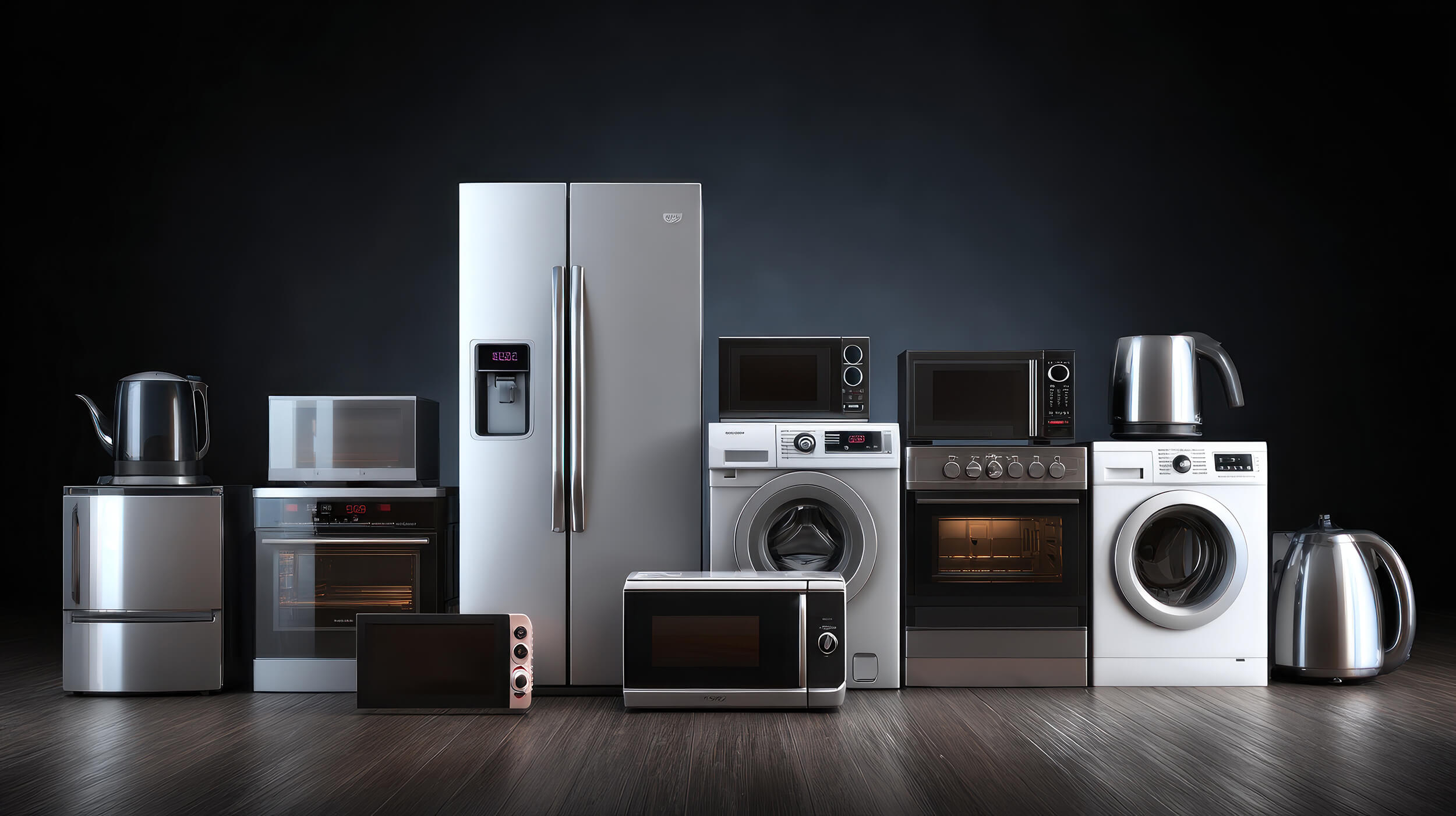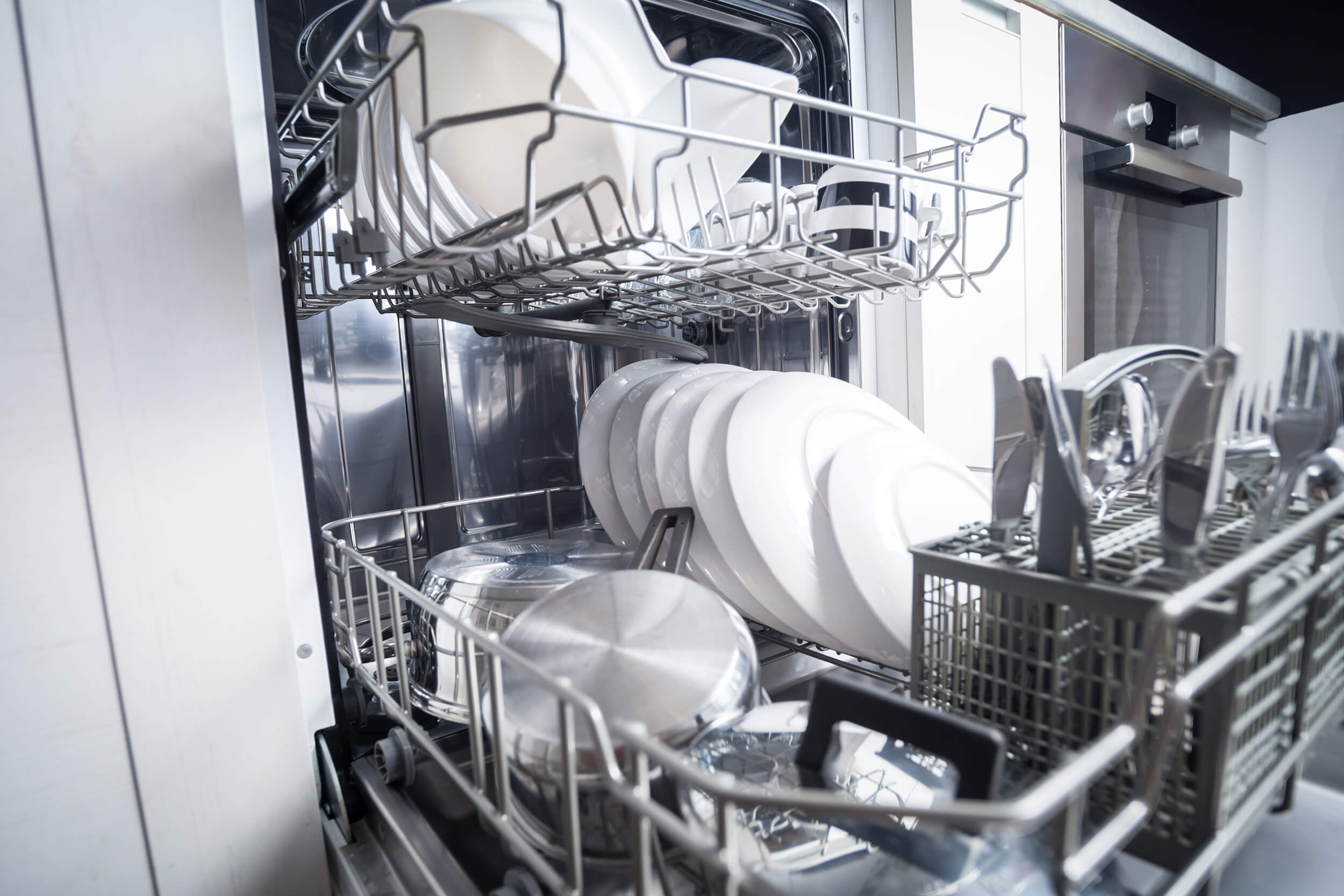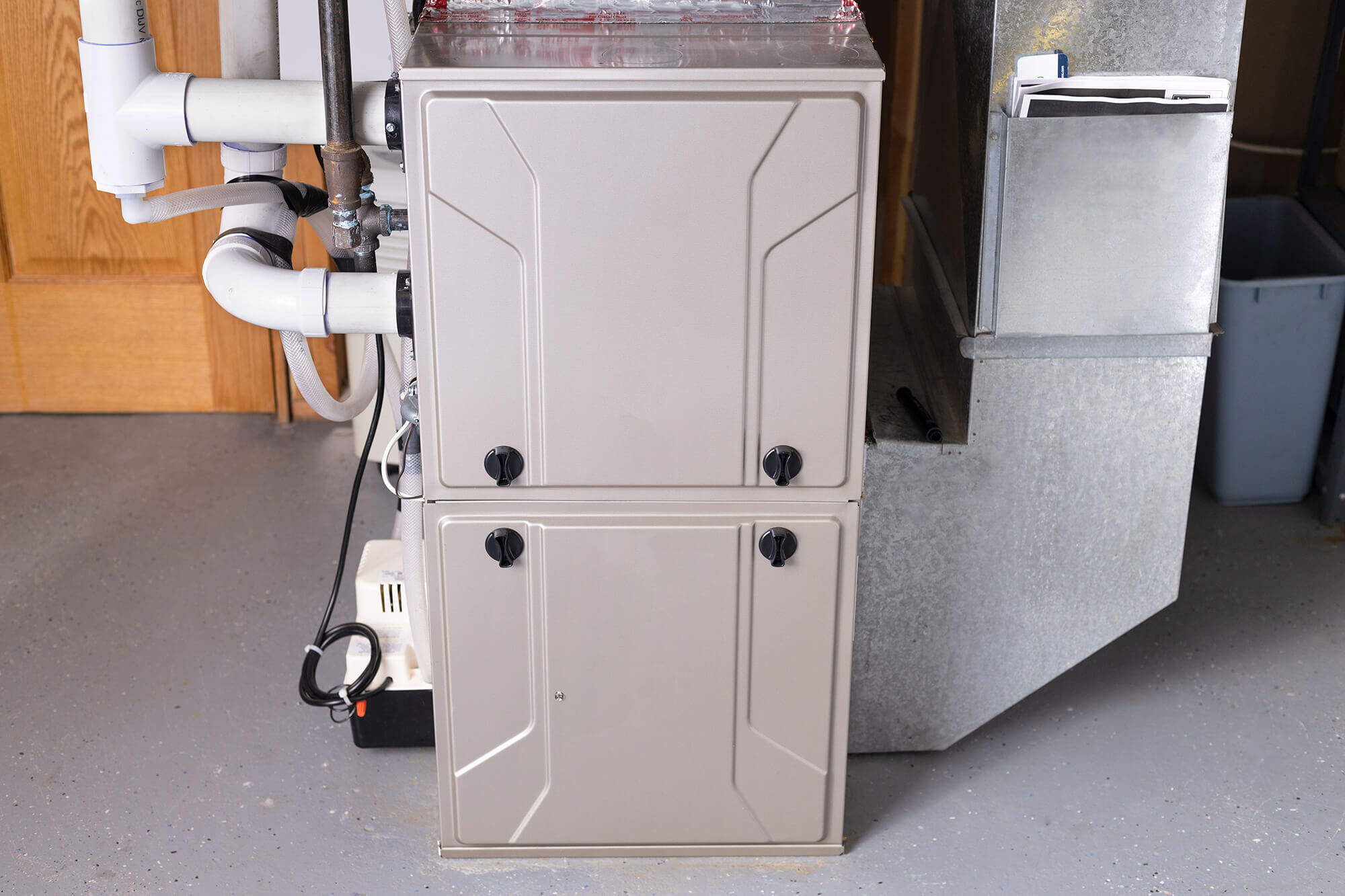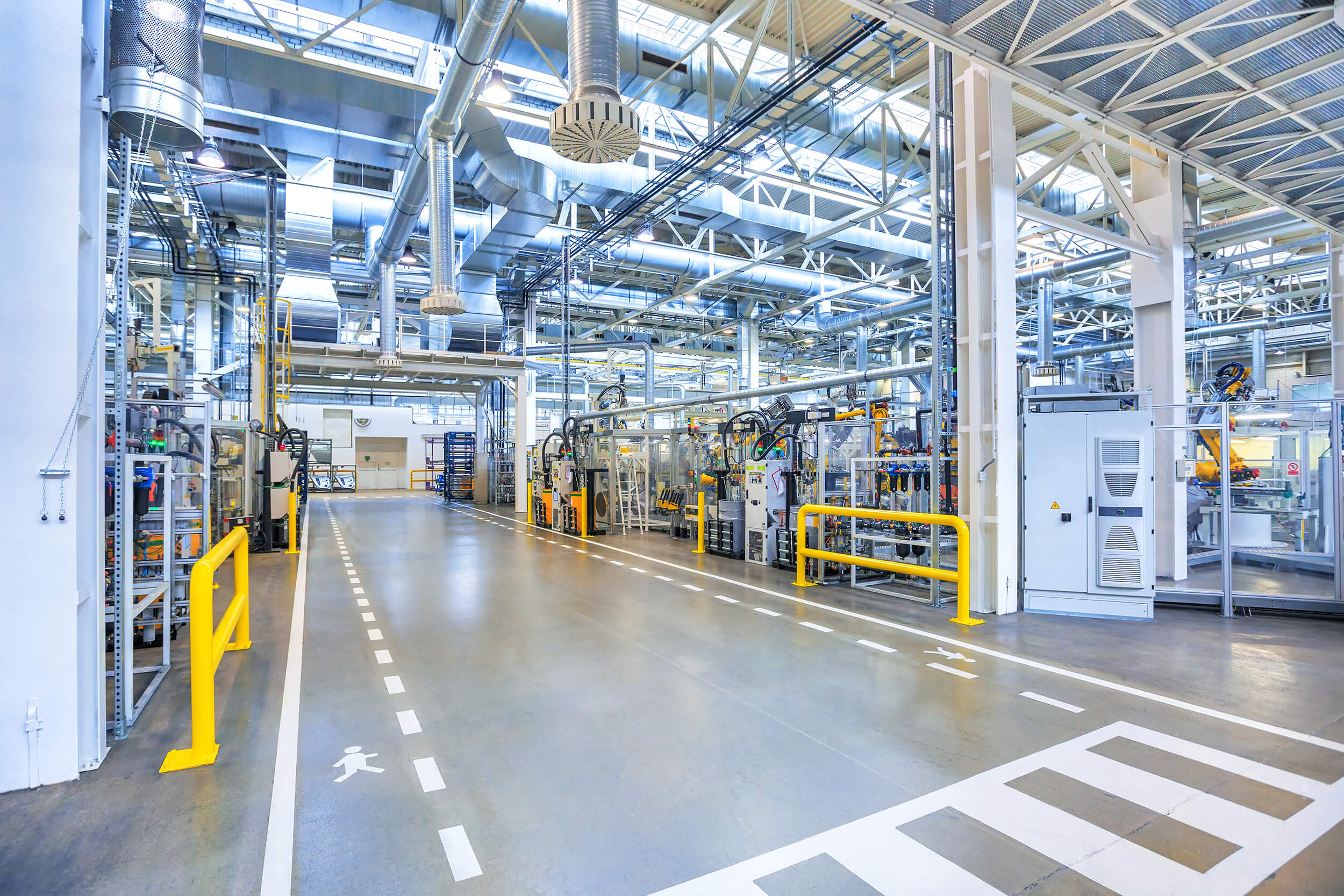Contact:
Marianne DiMascio, Appliance Standards Awareness Project
(339) 933-8140, mdimascio@standardsasap.org
Standards the result of negotiations among broad group of stakeholders
Washington, DC (December 17, 2015): Energy efficiency standards issued today for rooftop air conditioners and heat pumps—which represent the largest energy and pollution savings of any rule ever issued by the Department of Energy—will benefit businesses, manufacturers, and the environment, according to four of the organizations that participated in the negotiations leading to the announcement.
The Air-Conditioning, Heating, and Refrigeration Institute (AHRI) representing manufacturers, the Appliance Standards Awareness Project (ASAP), the American Council for an Energy-Efficient Economy (ACEEE), and Natural Resources Defense Council (NRDC) joined other stakeholders in the negotiations.*
The new standards are expected to save 1.7 trillion kilowatt hours over 30 years of sales, or almost as much energy as created by all the coal burned in the United States to generate electricity in a year. Rooftop air conditioners cool about half the commercial floor space in the nation. DOE also set standards for commercial warm air furnaces, which are typically installed with the rooftop commercial air conditioners.
“DOE is ringing in the holiday season with truly monumental energy and economic savings,” said Andrew deLaski, ASAP executive director. “Huge energy bill savings, enormous emissions reductions, and a clear regulatory roadmap will spread good cheer to the businesses that pay cooling bills, to the environment, and to the manufacturers that make these products.”
Based on DOE’s estimates, the new rooftop air conditioner standards will save more energy and cut more emissions than any other standards completed by the agency, outpacing the previous record-setters that covered electric motors (2014) and fluorescent tube lamps (2009). DOE estimates that the new standards will save businesses as much as $50 billion in energy costs.
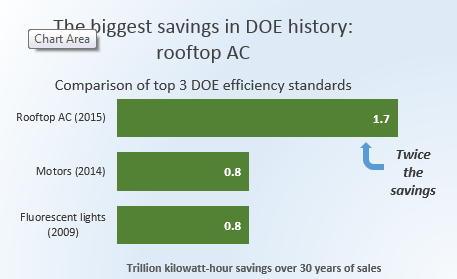
Stephen Yurek, president and CEO of AHRI, praised the DOE-convened negotiation process that brought together 17 stakeholders including representatives of individual manufacturers, installers, utilities, environmental groups, and efficiency organizations. “The consensus agreement provides our members with certainty while providing benefits for consumers and businesses.”
“As in Paris, when the community of nations made history by banding together to fight climate change, these historic efficiency standards were the result of an accord reached by stakeholders who set aside their competing interests for the common good,” said NRDC President Rhea Suh. “These are very, very promising days in the global fight to slow, stop, and reverse climate change, the central environmental challenge of our time.”
Steve Nadel, executive director of ACEEE said: “These standards are a game-changer for the commercial sector. Industry and advocates worked closely together to help produce the biggest energy savings standards in US history. These new standards will bring down the cost of doing business and improve bottom lines by letting companies invest money they used to spend on heating and cooling. This will in turn stimulate the economy, create jobs, and bring us closer to the finish line of the president's climate goals for appliance standards.”
Rooftop air conditioners are typically found on low-rise buildings such as big box stores, schools, apartment buildings, restaurants, and offices. The new standards would net a typical building owner between $4,200 and $10,100 over the life of a single rooftop air conditioner. Moreover, unlike a typical household that has just one central air conditioning unit, commercial spaces have multiple units, and therefore may enjoy bigger savings. A typical big box store, for example, often has over 20 units. And that’s just one building among millions of commercial facilities across the country.
The rooftop air conditioner standards will take effect in two phases, increasing minimum efficiency by about 10% as of January 1, 2018, and by 25–30% as of January 1, 2023. Standards for new warm air furnaces that are typically installed as a unit with a commercial air conditioner also become effective in 2023.
* Working group members: U.S. Department of Energy, California Investor-Owned Utilities (Pacific Gas & Electric Company, San Diego Gas & Electric Company, Southern California Edison, and Southern California Gas Company), Appliance Standards Awareness Project, Northwest Energy Efficiency Alliance, Natural Resources Defense Council, Trane/Ingersoll Rand, Lennox, Rheem Manufacturing Company, Air Conditioning Contractors of America, American Council for an Energy-Efficient Economy, Mitsubishi Electric, United Technologies Corporation, Underwriters Laboratories, Goodman Manufacturing, Emerson Climate Technologies, Sheet Metal and Air Conditioning Contractors National Association, Inc., Air-Conditioning, Heating, and Refrigeration Institute
About ASAP
The Appliance Standards Awareness Project (ASAP) is a coalition that includes representatives of efficiency, consumer and environmental groups, utility companies, state government agencies, and others. Working together, the ASAP coalition seeks to advance cost-effective standards at the national and state levels through technical and policy advocacy and through outreach and education. ASAP’s founders include the American Council for an Energy-Efficient Economy, the Alliance to Save Energy, and Natural Resources Defense Council. Visit ASAP at www.appliance-standards.org.
About AHRI
The Air-Conditioning, Heating, and Refrigeration Institute (AHRI) is the trade association representing manufacturers of air conditioning, heating, commercial refrigeration, and water heating equipment. An internationally recognized advocate for the industry, AHRI develops standards for and certifies the performance of many of these products. AHRI’s 300+ member companies manufacture quality, efficient, and innovative residential and commercial air conditioning, space heating, water heating, and commercial refrigeration equipment and components for sale in North America and around the world. Visit AHRI at www.ahrinet.org.
About ACEEE
The American Council for an Energy-Efficient Economy is a nonprofit organization that acts as a catalyst to advance energy efficiency policies, programs, technologies, investments, and behaviors. Visit ACEEE at www.aceee.org.
About NRDC
The Natural Resources Defense Council (NRDC) is an international nonprofit environmental organization with more than 2 million members and online activists. Since 1970, our lawyers, scientists, and other environmental specialists have worked to protect the world's natural resources, public health, and the environment. NRDC has offices in New York City, Washington, D.C., Los Angeles, San Francisco, Chicago, Bozeman, MT, and Beijing. Visit us at www.nrdc.org and follow us on Twitter @NRDC.
Other contacts:
Francis Dietz, Air-Conditioning, Heating, and Refrigeration Institute
(703) 600-0355 (office), (703) 969-6444 (cell), fdietz@ahrinet.org
Patrick Kiker, American Council for an Energy-Efficient Economy
(202) 507-4043 (office), pkiker@aceee.org
Pat Remick, Natural Resources Defense Council
(202) 289-2411, premick@nrdc.org
